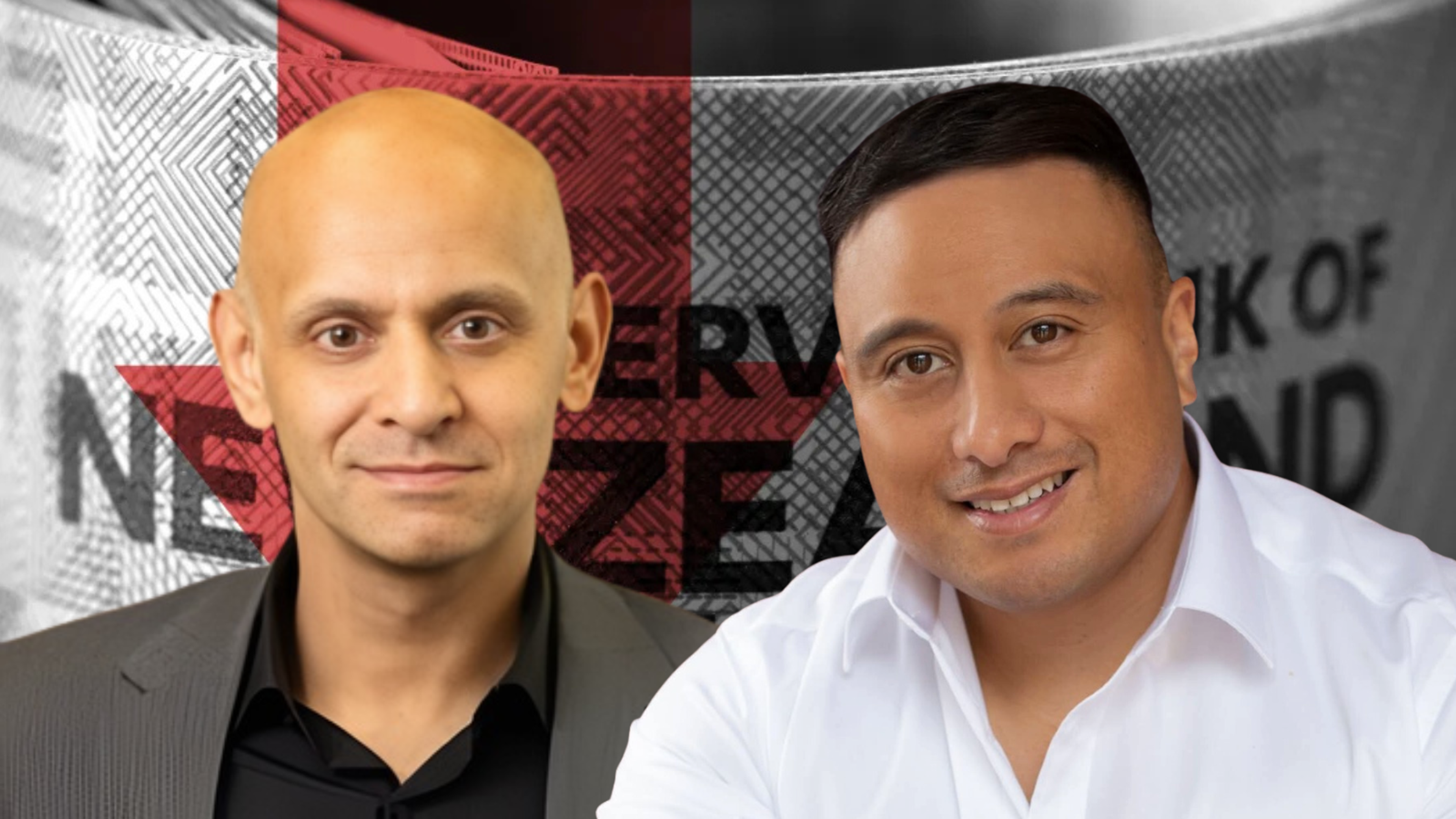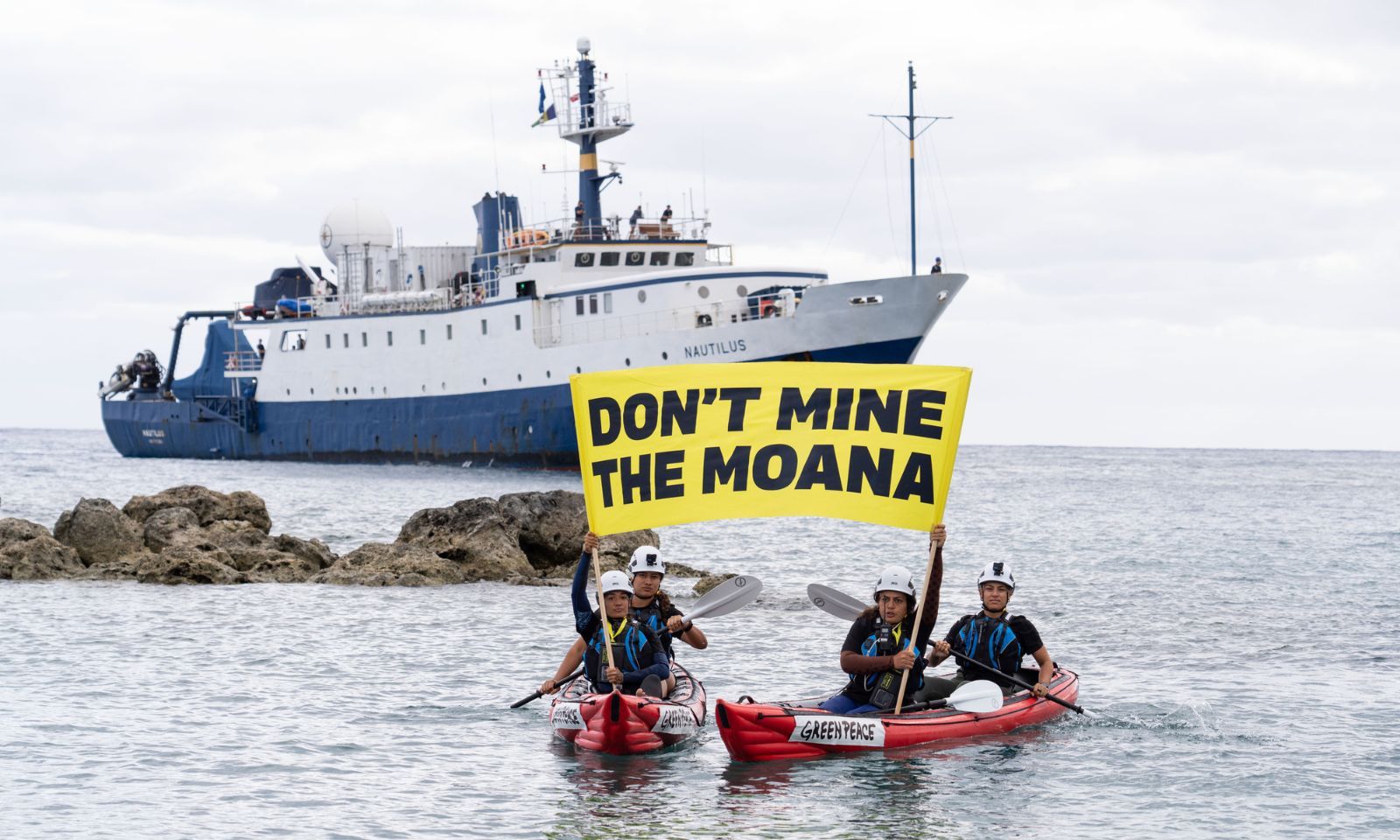

Ocean Ancestors’ Louisa Castledine (left) and Juressa Lee.
Photo/Greenpeace Aotearoa
Cook Islands activist urges reflection on cultural values amid deep sea mining push
Louisa Castledine says Cook Islanders must decide on whether deep sea mining aligns with their identity and guardianship of the moana, as global powers eye the Pacific seabed.


Rising costs hit Pacific families hard as interest rate decision nears

Fiji fast-tracks needle programme as new study shows HIV cases surging at record pace

‘Shot put queen’ Dame Valerie Adams leads Pacific pride at NZ's Halberg Awards 2026

Sāmoa tightens control of district funds with new seizure powers

Rising costs hit Pacific families hard as interest rate decision nears

Fiji fast-tracks needle programme as new study shows HIV cases surging at record pace

‘Shot put queen’ Dame Valerie Adams leads Pacific pride at NZ's Halberg Awards 2026
A Cook Islands environmental advocate says her community must critically evaluate the implications of deep sea mining, which she argues undermines their sovereignty, identity, and ocean relationship with the ocean.
The Cook Islands government is moving forward with plans to explore what could be one of the world’s largest deep-sea mineral reserves. Estimates suggest its Exclusive Economic Zone (EEZ) may hold billions of tonnes of polymetallic nodules rich in cobalt, nickel, copper, and rare earth elements.
The nation has also signed exploration licences and formed strategic partnerships with global powers, including the United States and China, both citing “responsible development” of seabed resources.
Recently, four Cook Islands activists in kayaks confronted a US-funded exploration vessel as it returned to port in Rarotonga.They displayed a banner that read, “Don’t Mine the Moana.”
Speaking with PMN Cook Islands, Louisa Castledine, activist and Ocean Ancestorsspokesperson, praised the “four brave wāhine toa [strong women]” for their protest, highlighting the intentional nature of their actions.
“There's also this challenge that we face where we're focused on appearances rather than on intent. The reason why these four women stepped out to protest is because we as women are naturally carers and caregivers for our home,” Castiledine says.
“Our moana is part and parcel of our home and we as women are nurturers and carers for that. Often mining industries, industrialisation or corporatising our ocean, don't care for the resources and the future impacts of what extraction might mean for our people and future generations.
“Although there's been a lot of conversation around ‘we haven't decided to mine’, the research all leads to one direction: it enables corporations and governments to exploit and extract from our ocean and that's what we were opposing.”

Cook Islands activists peacefully confront the US-funded Nautilus vessel in Rarotonga, holding a “Don’t Mine the Moana” banner to protest against deep sea mining in Pacific waters. Photo/Supplied
The Cook Islands is nearing the end of its five-year research phase on seabed minerals. While international partnerships present opportunities, there is growing concern. Castledine warns that global powers, including the US and China, are seeking strategic advantages from the Pacific’s mineral-rich seabed.
“What is really evident is that meaningful engagement with our people continues to be overlooked,” she says. “So for us, science informs us on potential environmental impacts but science doesn't inform us on what that might mean for us culturally.
“It doesn't inform us on what it means for us spiritually. There are tangible impacts that can occur from mining the deep sea but there are also intangible impacts that we are not considering and not discussing.”
Listen to Louisa Castledine’s full interview below.
She says mining the ocean also affects Cook Islanders’ sense of identity, guardianship, and how they are perceived as “ocean people”. Castledine explains that these intangible harms threaten their role as stewards of the moana and disconnects future generations from their ancestral relationship with the sea.
She also questions the motives behind foreign-funded research, saying the Nautilus expedition was supported by the US, which recently issued an executive order to pursue deep sea mining.
Castlinedine warns that partnerships driven by commercial or geopolitical interests should be treated cautiously, especially since the Cook Islands’ Marae Moana policy aims to protect biodiversity, which contradicts any move towards ocean extraction.
Earlier this year, Castledine attended the United Nations Ocean Conference (UNOC), a global summit where leaders and ocean advocates discuss the future of marine protection and deep sea mining.
When she left the conference, she noted that 36 countries had agreed to a moratorium on deep sea mining, a number that has since grown to 40. She says the trend suggests that scientific evidence is leading countries to question the viability of deep sea mining.
She says opposition to deep sea mining is growing as awareness spreads across the Pacific, but many questions remain unanswered.

Louisa Castledine of the Ocean Ancestors collective says deep sea mining poses an existential threat to Pacific cultures, livelihoods, and the sacred ocean environment. Photo/File
“Right now, there is a strong appetite from our government towards mining and a lot of the language and engagement that we see promotes that. That is a concern because it's not capturing the counter or the balance of the other side,” Castledine says.
“Being neutral and having an ability to make informed decisions should have a balanced approach, and currently we're lacking that. In order for our people to make an informed decision and be engaged in a meaningful way, both sides of the coin need to be understood.”